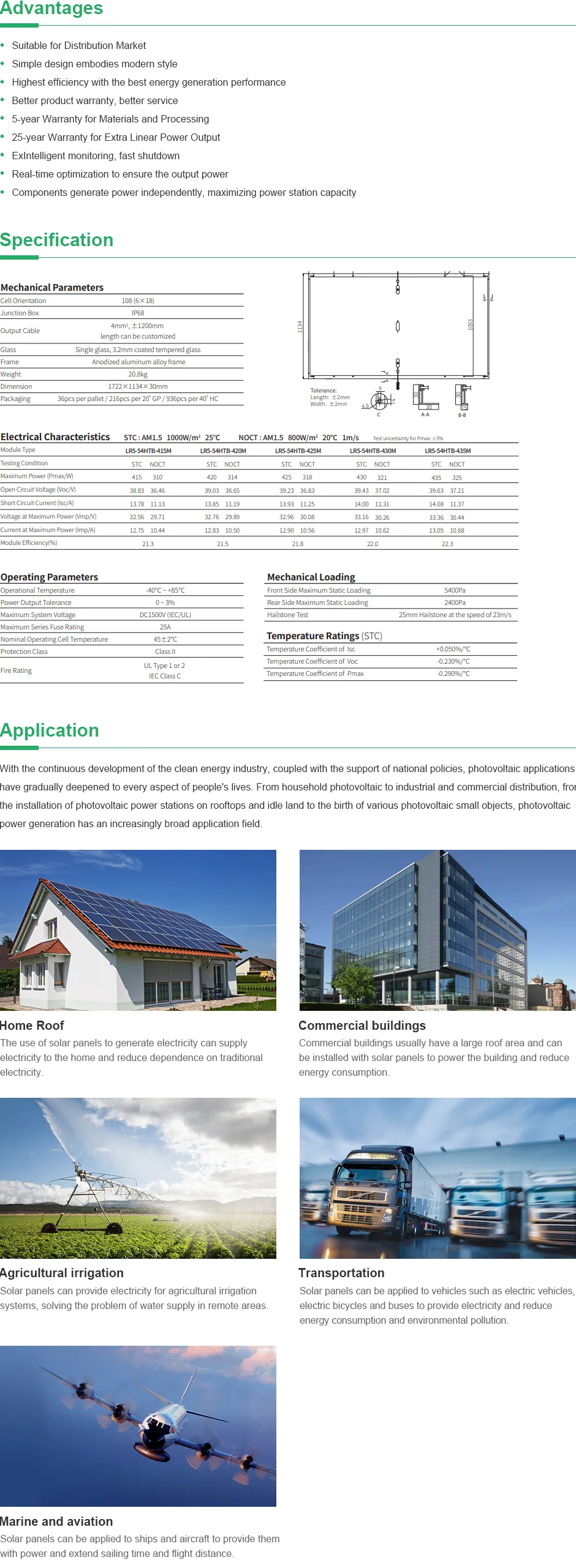Exploring the Benefits of Off-Grid Solar Inverter Solutions for Sustainable Energy Independence
Understanding Off-Grid Solar Inverters The Key to Energy Independence
As the world increasingly shifts towards sustainable energy solutions, off-grid solar systems have gained significant attention. These systems allow homeowners and businesses to harness solar power independently from the traditional electric grid. A crucial component of these systems is the off-grid solar inverter, which plays a vital role in converting solar energy into usable electricity. In this article, we will explore the function, types, benefits, and considerations of off-grid solar inverters.
What is an Off-Grid Solar Inverter?
An off-grid solar inverter is a device that transforms direct current (DC) electricity generated by solar panels into alternating current (AC) electricity, which is used by most household appliances. Unlike grid-tied inverters, which synchronize with the local grid for power flow, off-grid inverters operate independently. This means they are equipped to manage energy storage systems, such as batteries, allowing users to store surplus energy for use when sunlight is not available.
Types of Off-Grid Solar Inverters
There are primarily three types of off-grid solar inverters
1. Pure Sine Wave Inverters These inverters produce a smooth, wave-like output that is ideal for sensitive electronics. They mimic the power produced by the grid and are suitable for running appliances like computers, televisions, and medical equipment.
2. Modified Sine Wave Inverters While less expensive than pure sine wave inverters, modified sine wave inverters generate a less smooth power output. They are suitable for running simple devices like lights and fans but may not be ideal for sensitive electronics.
3. Hybrid Inverters These versatile inverters can work both in off-grid and grid-tied systems. They allow for the integration of batteries and can switch between grid power and battery power based on availability and preferences.
Benefits of Off-Grid Solar Inverters
The appeal of off-grid solar inverters extends beyond just energy independence
. Here are several key benefits- Energy Independence By generating their power, users are less affected by rising utility rates or grid outages. In remote areas, off-grid systems provide a reliable energy source where traditional power lines may not reach.
off grid solar inverter

- Environmental Sustainability Utilizing solar energy reduces reliance on fossil fuels, thereby decreasing carbon emissions. This transition contributes to a cleaner environment and a more sustainable future.
- Cost Savings Although the initial investment in solar panels and inverters can be high, the long-term savings on electricity bills can be substantial. Additionally, many regions offer incentives and tax credits for renewable energy installations, which can further offset costs.
- Low Maintenance Off-grid solar systems generally require low maintenance. Solar panels typically have long lifespans, and with the right equipment, the inverters can also provide years of reliable service.
Considerations When Choosing Off-Grid Solar Inverters
Before investing in an off-grid solar inverter, there are several factors to consider
- Power Requirements Understanding the total wattage required to power home appliances is essential. This will dictate the size and capacity of the inverter needed.
- Battery Compatibility Not all inverters are compatible with every type of battery. Ensuring that the chosen inverter works well with the specific battery technology (such as lead-acid or lithium-ion) is crucial for optimal performance.
- Efficiency Ratings Efficiency is an important metric when selecting an inverter. Higher efficiency means less energy loss during the conversion process, leading to better overall performance.
- Installation and Warranty Professional installation is recommended to ensure safety and compliance with local regulations. Additionally, the warranty period can be indicative of the manufacturer's confidence in their product.
Conclusion
Off-grid solar inverters are a vital component of the renewable energy landscape, enabling households and businesses to achieve energy independence and sustainability. With a variety of options available, understanding the different types, benefits, and factors to consider when choosing an inverter is crucial. As technology continues to advance, the efficiency, reliability, and affordability of off-grid solar inverters will only improve, making them an increasingly viable solution for a wide range of energy needs. Whether for a cabin in the woods, a tiny house, or a rural homestead, investing in an off-grid solar system can pave the way toward a self-sufficient, eco-friendly lifestyle.
-
Unlocking Energy Freedom with the Off Grid Solar InverterNewsJun.06,2025
-
Unlock More Solar Power with a High-Efficiency Bifacial Solar PanelNewsJun.06,2025
-
Power Your Future with High-Efficiency Monocrystalline Solar PanelsNewsJun.06,2025
-
Next-Gen Solar Power Starts with Micro Solar InvertersNewsJun.06,2025
-
Harnessing Peak Efficiency with the On Grid Solar InverterNewsJun.06,2025
-
Discover Unmatched Efficiency with the Latest String Solar InverterNewsJun.06,2025







